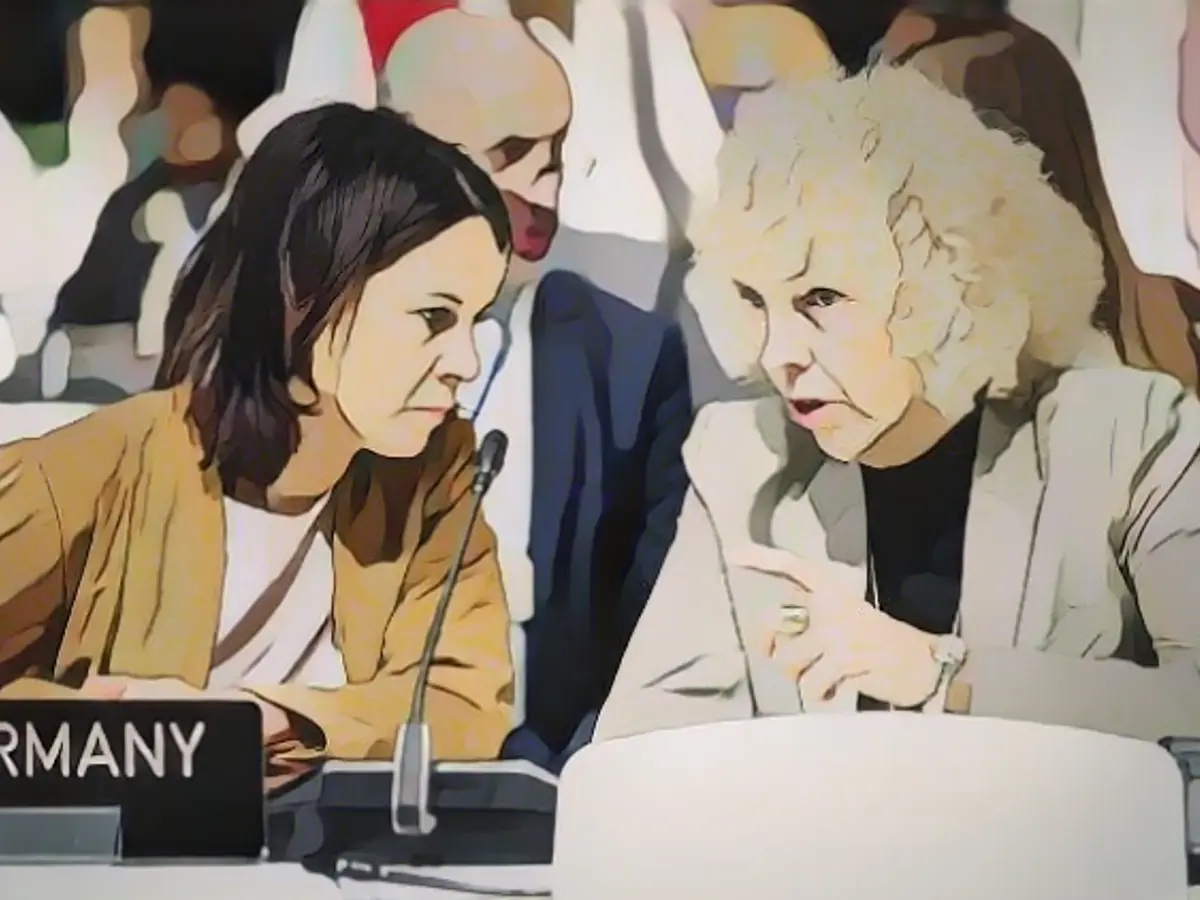Greenpeace believes historic COP decision is within reach
A historic decision seems possible at the COP28 climate conference in Dubai: according to Greenpeace, all 200 or so countries could agree to phase out fossil fuels. Foreign Minister Baerbock believes this is possible, but is more cautious.
Almost three decades after the first UN Climate Change Conference, Greenpeace believes there is a realistic chance for the first time that the 200 or so countries will decide to phase out coal, oil and gas. "We are close to making history here," said Kaisa Kosonen, head of the environmental organization's delegation at the UN meeting in Dubai. Never before had she felt so much pressure and energy for this.
Foreign Minister Annalena Baerbock, on the other hand, was more cautious on Deutschlandfunk radio. According to her, an agreement threatens to fail due to China and Saudi Arabia. The most contentious issue is whether an agreement can be reached there on phasing out coal, oil and gas. Baerbock sees the fact that this dispute is being conducted as positive. "It makes it so clear what a great opportunity we currently have that everyone actually knows that things can't go on as they are."
Baerbock called on China and Saudi Arabia not to stand in the way of the resolutions. Those who aspire to play a leading role internationally must also "take responsibility for the countries that are already literally up to their necks in water, namely the small island states where people are already being evacuated because the coasts are breaking away," said the Green politician.
At the weekend, a letter from the oil cartel OPEC caused outrage at the climate conference. In it, she called on the OPEC member states, among others, to block decisions to phase out coal, oil and gas. The conflict shows "that we are not yet where we need to be at the end of this climate conference", said Baerbock. As decisions have to be made unanimously, "one OPEC country alone is enough to block everything. And that is why we still have a lot of hard work ahead of us."
Russia could block everything
Baerbock emphasized that a consensus was possible, but also highlighted the role of major geopolitical conflicts. "Countries such as Russia are also negotiating here, which in case of doubt have no interest in climate policy at all, but have something completely different in mind due to their brutal Russian war of aggression on Ukraine," she said. "That makes it particularly difficult in these times."
Greenpeace delegation leader Kosonen also conceded that there is still considerable resistance to ambitious resolutions to phase out fossil fuels - "with Saudi Arabia at the forefront of the opposition", she said. However, she also referred to a joint call by 106 countries to phase out fossil fuels - including the EU and many African, Caribbean and Pacific countries. There is now also strong pressure from Latin America and from the Alliance of Small Island States, which are severely threatened by rising sea levels as a result of global warming.
The option of a blockade and no decision at all on the hotly debated topic in Dubai therefore remains on the table. Some developing countries are also worried about how they will manage the energy transition to renewable energies on their own. The conference with around 97,000 participants is due to end on Tuesday. In recent years, however, it has always gone into extra time, usually for one or two days.
According to a study by the International Energy Agency (IEA), the greenhouse gas reduction pledges made so far at the World Climate Conference in Dubai (COP28) fall far short of the level required to comply with the 1.5 degree limit. Although there have been "positive steps forward" in reducing emissions, these are "not nearly enough to put the world on track to meet international climate targets", according to the report, which was published in Dubai on Sunday.
Read also:
- Year of climate records: extreme is the new normal
- Precautionary arrests show Islamist terror threat
- SPD rules out budget resolution before the end of the year
- Numerous oil, gas and coal lobbyists at climate conference
Despite Greenpeace's optimism, the challenge of gaining consensus among all 200 countries at the COP28 climate conference in Dubai 2023, particularly with regard to phasing out coal, oil, and gas, remains significant. This is due to both internal disagreements within major powers and external pressures from entities like OPEC, which has called for the preservation of fossil fuels. Foreign Minister Annalena Baerbock, while hopeful, has expressed concerns about countries like China and Saudi Arabia potentially hindering the agreement, as they are key players in the fossil fuel industry.
Source: www.ntv.de








